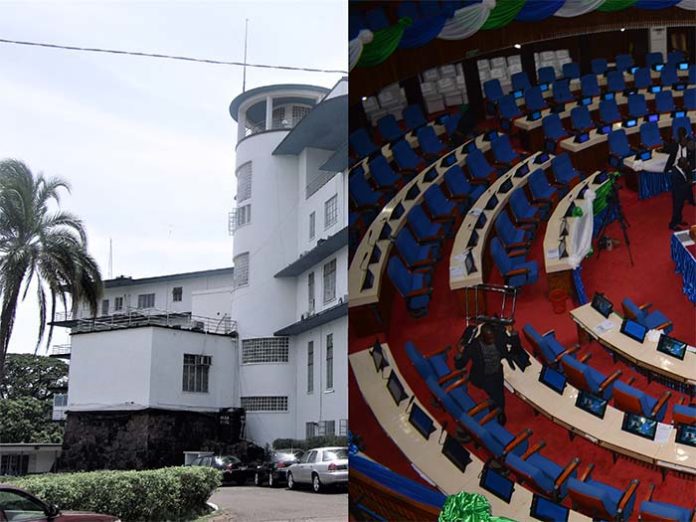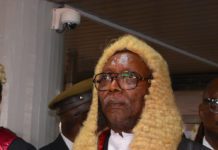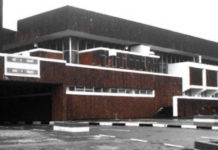
What does Executive power protect?
Executive power is the constitutional principle that permits the president and high-level executive branch officers to withhold information from Parliament, the courts, and ultimately the public. This presidential power is controversial because it is nowhere mentioned in the Sierra Leone Constitution. That fact has led some scholars to suggest that executive power does not exist and that the Parliamentary power of inquiry is absolute. There is no doubt that presidents and their staffs have secrecy needs and that these decision-makers must be able to deliberate in private without fear that every utterance may be made public. But many observers question whether presidents have the right to withhold documents and testimony in the face of Parliamentary investigations or judicial proceedings.
Executive power is an implied presidential power that is recognised by the courts, most famously in Supreme Court cases. There are generally four areas that an executive branch’s claim of privilege is based:
1) presidential communications privilege;
2) deliberative process privilege;
3) national security, foreign relations or military affairs, and
4) an ongoing law enforcement investigation. In previous controversies over Parliamentary access to Department of Justice documents pertaining to an attempt on Furious scandal investigation, the presidents and Attorney Generals often relied on the deliberative process power and also ongoing law enforcement investigation defence.
Most Presidents in Sierra Leone have not used this power for the public good; instead, some have claimed executive power to conceal wrongdoing or politically embarrassing information. In certain controversies where our Presidents claim executive power over documents, critics suggest that their actions constitute improper use of that power. Presidents and their defenders argue that they are instead protecting a core presidential function by stopping Parliament from intruding into areas where it does not belong.
No president in Sierra Leone ever used the phrase “executive power” until when his rots were about to expose. The truth is the phrase is not a part of the common language. Nonetheless, all presidents going back to Siaka Stevens have exercised some form of what we today call executive power. Often the use of this authority occurred when Parliament demanded from the Executive administration information regarding the unwise use of Sierra Leone taxpayers’ monies or entered into negotiations at the national expense. Parliament specifically requested State House records and testimony from presidential staff familiar with the event. State House convened his Cabinet to discuss whether a president possessed the authority to deny information to Parliament. The Cabinet and the president agreed that the chief executive indeed had such authority when exercised in the public interest. The president communicated this view to Parliament in writing. State House eventually decided to cooperate with the Parliamentary inquiry and turned over the requested materials. But he had first laid the groundwork for the presidential use of executive power.
State House established the proper standard – that presidential secrecy must be used only in the service of the public interest. The evolution of the exercise of executive power and of the legal decisions governing its use make it clear that this is a legitimate presidential power when used appropriately. Nonetheless, most of our Presidents gave executive power a bad name when used to try to conceal sensitive information about rogue deals at the expense of the State.
Like other constitutional powers, executive power is subject to a balancing test. Just as presidents and their advisers need confidentiality, Parliament must have access to executive branch information to carry out its constitutionally based investigative function. Therefore, any claim of executive power must be weighed against Parliament’s legitimate need for information to carry out its own constitutional role. And, of course, the power of inquiry is not absolute, whether it is wielded by Parliament or by prosecutors.
In our constitutional system, the burden is on the executive to prove that it has the right to withhold information and not on Parliament to prove that it has the right to investigate. Executive power should be reserved for the most compelling reasons. It is not a power that should be routinely used to deny those with compulsory power the right access to information. Short of a strong showing by the executive branch of a need to withhold information, Parliament‘s right to investigate must be upheld. To enable the executive to withhold whatever information it wants would be to establish a bad constitutional precedent that would erode a core function of the legislative branch and upset the delicate balance of powers in our system.
There have been proposals in Parliament to develop a clear statutory definition of executive power. Yet no such legislation has ever passed, and it is unlikely that such an effort would reduce interbranch conflicts over access to information. To date, the branches have relied on their existing constitutional powers to negotiate disputes over assertions of executive power. For the most part, the system failed to work well without a legislative solution.




